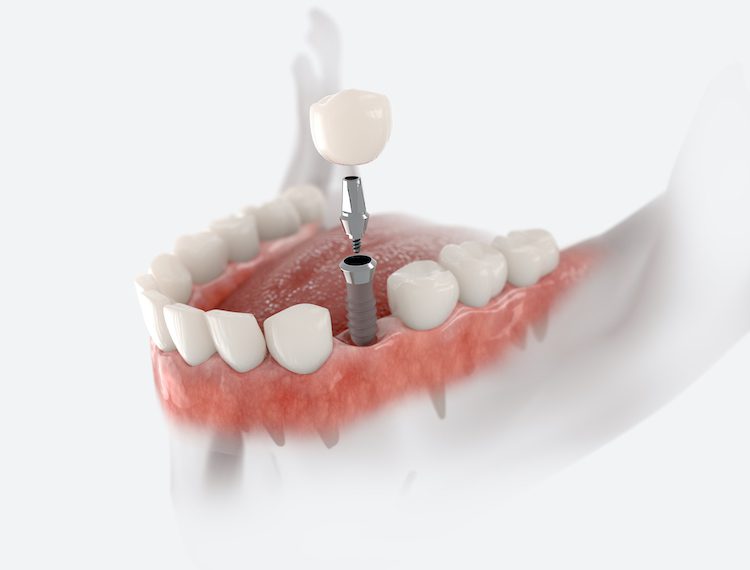Dental implants have revolutionized restorative dentistry by offering a durable and natural-looking solution for missing teeth. However, the process of receiving a dental implant is not as simple as scheduling a single appointment. Proper pretreatment evaluation and preparation are essential to ensure long-term success and avoid complications.
Comprehensive Dental Examination
The journey toward dental implants begins with a comprehensive dental examination. This includes a detailed review of your dental and medical history, a clinical assessment of your oral health, and diagnostic imaging such as X-rays or 3D cone beam CT scans. These images provide a clear view of the jawbone structure. They allowing your dentist to assess bone density and determine the precise placement of the implant. During this initial evaluation, the dental professional also checks for any signs of infection, gum disease, or other oral health conditions that could compromise implant success. Any issues found during this examination must be addressed before proceeding with the implant procedure.
Assessment of Bone Density and Volume
Dental implants require a sufficient amount of healthy jawbone to anchor the titanium post securely. If the bone is too thin or soft, it may not support the implant properly, increasing the risk of implant failure. Conditions like long-term tooth loss, periodontal disease, or trauma can lead to bone deterioration over time.
In cases where bone volume is insufficient, a bone graft may be recommended. Bone grafting involves transplanting bone material to the deficient area to stimulate new bone growth and create a stable foundation for the implant. This can delay the overall treatment timeline but is critical for the implant’s longevity and function.
Evaluation of Gum Health
Healthy gums are just as important as healthy bone when it comes to successful implant integration. Gum disease, particularly periodontitis, can cause inflammation, tissue loss, and eventual implant failure if not treated before the procedure. A thorough periodontal assessment is essential to identify any signs of gum disease.
If gum disease is present, non-surgical treatments such as scaling and root planing may be required to eliminate infection and promote healing. In more severe cases, surgical intervention might be necessary. Ensuring that your gums are free from disease helps provide a stable, infection-free environment for the implant to integrate with the bone.
Review of Medical History and Lifestyle Habits
Your overall health plays a significant role in how well your body can heal and accept a dental implant. Certain medical conditions, such as uncontrolled diabetes, autoimmune disorders, or bleeding disorders, can impair healing and increase the risk of complications. Medications that affect bone metabolism or the immune system may also impact the success of the implant.
Smoking is another major concern. Nicotine constricts blood vessels, reduces blood flow to the gums, and interferes with the body’s healing response. Patients who smoke are advised to quit prior to undergoing implant surgery to improve outcomes and reduce the risk of implant failure.
Customized Treatment Planning
Every patient’s dental needs and anatomy are unique, which means that implant treatment must be carefully tailored to the individual. A personalized treatment plan outlines the type of implant, the number of implants required, the timing of placement, and whether additional procedures like bone grafting or sinus lifts are needed. This plan also takes into consideration the aesthetic goals of the patient, better ensuring that the final restoration blends seamlessly with the natural teeth in both form and function.
Dental Implants in Chicago, IL
At Dazzling Dentistry, we are committed to your oral health. If you have missing teeth, dental implants could restore your smile and improve your bite. If you’re considering implants, it’s crucial to understand potential pretreatment ahead of time. Contact our office to schedule a consultation and learn more about the implant process.

